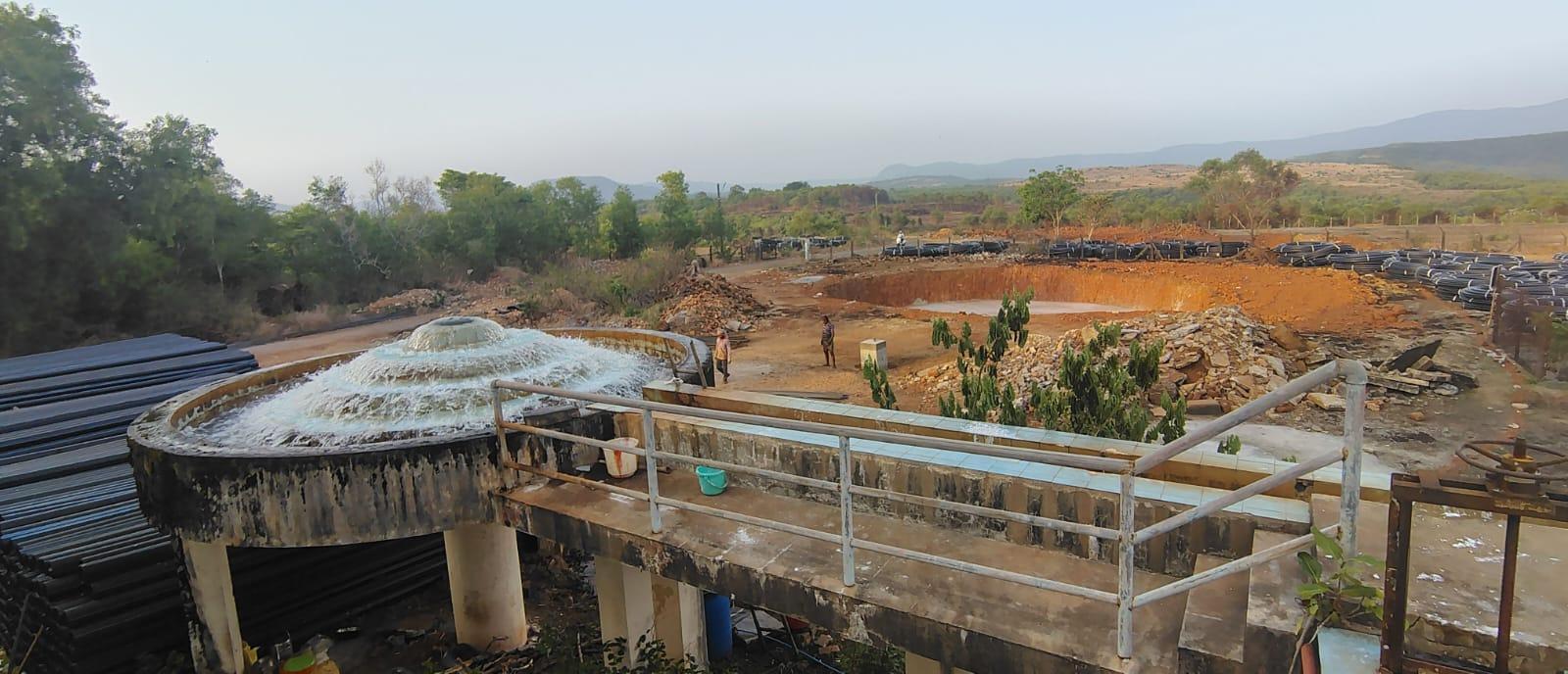
Bhatkal: In light of the acute shortage of drinking water during the summer season, a comprehensive master plan is being implemented in Bhatkal to ensure water supply to every household. Under the Atal Mission for Rejuvenation and Urban Transformation (AMRUT) 2.0 scheme, practical steps are underway at an estimated cost of around ₹30 crore.
As part of this major project, the town has been divided into six zones. Two new water tanks, each with a capacity of 10 lakh liters, are under construction on the hills near Anjuman College and Makhdoom Colony. Additionally, old and deteriorated pipelines in the existing zones are being replaced with High-Density Polyethylene (HDPE) pipes.

To fund the project, the central government will contribute 50% of the total cost (approximately ₹1,261.50 lakh), the state government will cover 40% (around ₹1,009.20 lakh), and the Bhatkal Municipality will bear 10% (₹252.30 lakh). In addition, the Municipality will provide ₹205 lakh for sanitation and ₹198 lakh for maintenance, bringing its total contribution to ₹655.30 lakh.
The project received approval following a resolution passed at a Bhatkal Municipal Council meeting last year. The Karnataka Urban Development Department has entrusted execution to the Karnataka Urban Water Supply and Sewerage Board (KUWSSB), with the Executive Engineer of the Karwar Zone overseeing the work.
Providing details, Bhatkal Town Municipal Council (TMC) In-Charge President Muhiddin Altaf Kharuri stated that outdated CI, AC, and PVC pipelines in older wards are being replaced with HDPE pipes. In areas where pipelines were never laid, trenching work is being carried out along roadsides to install new HDPE pipelines. He appealed to the public to fully cooperate with municipal authorities during these development activities.

According to Kharuri, six zones have been established to ensure household-level water supply across Bhatkal's 66-kilometer municipal area. In places where pipelines are severely damaged, new HDPE pipelines are being installed. Additionally, previously installed pipelines under the KUIDFC scheme will be reviewed and upgraded as needed.
Under Resolution No. 48 passed by the Council, a total budget of ₹2,926 lakh has been sanctioned to enhance the town's water supply infrastructure under AMRUT 2.0. KUWSSB has submitted an estimated cost of ₹2,728 lakh for the project's execution, with an additional ₹198 lakh earmarked for five years of maintenance and operations.
Earlier, a water supply scheme had been initiated in 2007–08 under the KUIDFC, which included the construction of a jackwell and pump house at Kadvinkatta, along with an 8.20 MLD capacity water treatment plant on Anjuman College Hill. Under the current plan, the existing water tank on Anjuman Hill will be retained and supplemented by a new 10-lakh-liter tank. Similarly, at Makhdoom Colony, the existing 8-lakh-liter tank will remain operational while a new 10-lakh-liter tank is being added. Additional water will also be supplied from existing tanks near Barni Matti, which is located close to Jamia Masjid. Tanks at Nawayath Colony and Sante Market will also remain operational to ensure water reaches all homes within the municipal limits.
A city-wide household survey will be conducted to determine the number of homes needing water connections. If neighboring panchayat areas face shortages, they may also be included in the plan. Kharuri urged residents to cooperate and provide all necessary information during the door-to-door survey.
This AMRUT 2.0 initiative has been made possible due to the consistent efforts of Bhatkal MLA and Uttara Kannada District In-Charge Minister Mankal Vaidya, who actively pursued the approval and execution of this crucial infrastructure project, Kharuri added.
